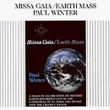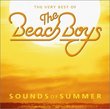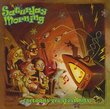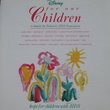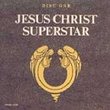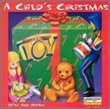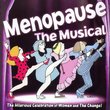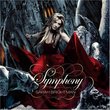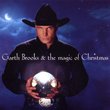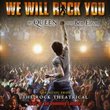| All Artists: Hanns Eisler, Matthias Goerne, Eric Schneider Title: Eisler: The Hollywood Songbook Members Wishing: 1 Total Copies: 0 Label: London / Decca Release Date: 11/10/1998 Genres: Pop, Classical Styles: Vocal Pop, Opera & Classical Vocal, Historical Periods, Modern, 20th, & 21st Century Number of Discs: 1 SwapaCD Credits: 1 UPC: 028946058220 |
Search - Hanns Eisler, Matthias Goerne, Eric Schneider :: Eisler: The Hollywood Songbook
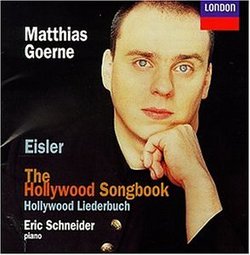 | Hanns Eisler, Matthias Goerne, Eric Schneider Eisler: The Hollywood Songbook Genres: Pop, Classical
Hanns Eisler was a composer with a social conscience, but, like the poet in one of these songs, he reaped only anguish. Driven from his native Germany where his music was banned by the Nazis, he went to California and wro... more » |
Larger Image |
CD DetailsSynopsis
Amazon.com Hanns Eisler was a composer with a social conscience, but, like the poet in one of these songs, he reaped only anguish. Driven from his native Germany where his music was banned by the Nazis, he went to California and wrote excellent film scores, but was unable to reconcile himself to Hollywood's mass culture, leaving him a stranger in a foreign land. These songs--like so much in the extraordinary Entartete Musik series--express the experience of actual and spiritual exile, with its aching yearning for a home that no longer exists. Most of the texts are by Eisler's friend and fellow exile, Bertolt Brecht; together they create a grim picture of bleak desolation in the midst of material plenty. The songs are connected by a feeling of isolation and despair at the state of the world, as well as a pervasive strain of desperate humor and irony. The sense of rootlessness is most clearly reflected in the songs' abrupt, incomplete-sounding endings. The musical language is eclectic but highly original, ranging from echoes of Schubert, intimations of the serialism Eisler learned from Schönberg, to cabaret songs. Eisler was finally deported back to Germany during the McCarthy era, having never attained the stature he deserved. Matthias Goerne's incomparably velvety, variable, expressive voice and riveting inward concentration give the tragedy of the uprooted exile's loneliness a shattering emotional impact, and pianist Eric Schneider is terrific. It is interesting to compare Goerne's approach to that of baritone Wolfgang Holzmair, who uses a much drier sound and very pointed diction, underlining the songs' cabaret style to give them a stinging, sardonic sarcasm with stiletto-like sharpness. --Edith Eisler Similarly Requested CDs
|
CD ReviewsGoerne works wonders yet again. Jacob Greenberg | Chicago, IL | 12/23/1998 (4 out of 5 stars) "Eisler hasn't yet found his audience, but maybe this disk can rectify that. All the songs in this collection are inspired compositions, even if some seem like unfinished ideas and don't necessarily merit repeated listenings. However, Goerne makes all the songs seem special and meaningful, and he does truly seem to identify with Eisler the outcast. Eric Schneider's accompaniment is engaging and witty. The overall effect of the disk is very moving, and as always, Goerne's voice just melts me." Most important lieder cycle in the 20th century Andrew G. Lang | Cleveland, OH USA | 09/13/2002 (5 out of 5 stars) "Eisler was trained by Schoenberg in the great classical tradition but during the turbulent years of the Weimar Republic repudiated "art for art's sake" and turned his attention towards music with a social conscience. You would expect to see him only on the barricades, not in the recital hall, but Eisler was also a man of contradictions, and here he produces what Viennese musicologist Erwin Ratz described as the greatest cycle of German lieder in the 20th century.Goerne is one of the rising stars of German classical song, and in this recording his velvety but intense style is showcased in the only complete recording of Eisler's "Hollywood Songbook." The style is diverse ... ranging from lieder that are "almost Schubertian in their tenderness" (according to one reviewer) to songs in the twelve-tone style Eisler pioneered along with other great students of Schoenberg.Most of the songs are set to poems from the wartime exile years written by Bertolt Brecht. These compact but powerful texts testify to Brecht's significance not only as a revolutionary playwright but as a great poet whose eyes were fixed on the world around him.Goerne told one reviewer why he chose to record and perform lieder by a composer who until recently was virtually unknown outside of Germany: "For me, this chance discovery of this huge body of work by a real 20th century composer was a revelation, in that here was an artist comparable, in my opinion, to Brahms. The integrity, the consciousness of the times is so very great in Eisler that I was inspired to combine his songs with those of Schubert. The language of both composers, and you might also say the aim, is essentially the same despite superficial differences, and one might say that the 'Hollywood Liederbuch' is the 'Winterreise' of our times.""
|

 Track Listings (46) - Disc #1
Track Listings (46) - Disc #1